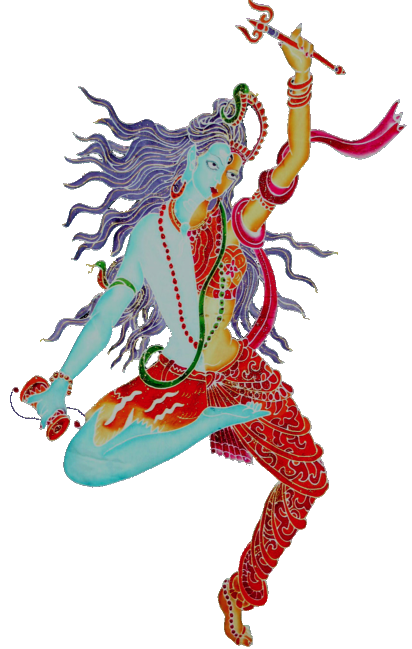The field of big love
Chapter in progress from the book “The Inner Game of Love”
©2006 Johanina Wikoff. All rights reserved.
Our deepest longing is to be loved. Our deepest fear is that we are unlovable.
This primal fear has its roots in our childhood when we are dependent on others for love. We look into our mother’s eyes and, if what we see reflected back is her pain and frustration, we take this to mean that we are somehow the source of her unhappiness. We take our father’s anger, perhaps perceived in his voice tone or gestures, as our fault.
Later, when we have reached adulthood, our fear of being unlovable keeps us running, doing, giving, and desperately trying to fill the gaping hole left by love’s absence. We hope that if we dance fast enough and win at life’s game, we won’t feel the pain and longing for unconditional acceptance that is buried just beneath the surface.
Considering how we are spoon-fed conditional love right from the beginning of life, by parents, caregivers and the culture around us, it isn’t surprising how addicted we become to approval and reflections of love from others. Childhood is filled with messages reminding us that being loved depends on being how we are expected to be:
- “You can have this if you are a good boy.”
- “If you act like this, people won’t like you or want to be around you.”
- “Mommy loves you when you are a good girl.”
- “Women only want men who are rich, powerful, accomplished.”
- “Men love your beauty and your body, and are intimidated by your brains and strength.”
Love can only happen when we are being ourselves. But we are terrified, deep down, to be ourselves, fearful that our authentic feelings and longings will be met with ridicule or rejection. So we are controlled by the fear that we won’t be loved unless we twist ourselves into a pretzel.
The fear of being unlovable creates stress, tension, and holding in our bodies. Babies thrive and learn to trust life in the relaxed, secure sense of being held and reflected back to in unconditional love. When this trust isn’t protected and nurtured, we create compensatory systems of protection in our body mind to stave off feeling the sense of being unworthy and unlovable.
But before we come to the awareness that what we are seeking cannot be found in temporary satisfactions, we try to pursue substitutions for love to fill our sense of emptiness. We try to avoid the feeling of loss or emptiness with food, drugs, accomplishments, sex, and love, and even self-improvement. Too often, Our attempt to fill the gaping hole of need with facsimiles of love turn out to be temporary fixes that leave us feeling bloated and remorseful — or in the case of romantic love, sorely disappointed.
The disappointment of romantic love is the teaching we want to explore here to help us understand how the trance of feeling unlovable can be broken open and we can experience the field of big love and real fulfillment.
The limits of romantic love become glaringly apparent in the inevitable disappointments we experience in intimate relationship. Our beloved turns out not to be the person we thought we were getting. Perhaps there was false advertising on the part of our partner. Or perhaps we allowed ourselves to see only what we wanted to see. But, make no mistake the beloved is still our teacher.
We enter into relationship full of hope and promise. After all, the one we desire wants us and sees us as loveable and special. In the bloom of new love we lose touch with the hard edges of our lives. We get a reprieve albeit brief, from the cycle of our own loneliness, shame, and conditional acceptance. When we fall in love, everything becomes softer and sweeter.
Romantic love has a fluffy quality. This love reflects back to us qualities of our own essence: innocence, openness, spontaneity, and sensuality. Romantic love takes us on a wild ride to exquisite heights, as well as into uncomfortable places when our ego structure is challenged. And rest assured, it will be challenged.
For all its magic and capacity to remind us of the love that is our true nature, the love we see reflected in our lover’s eyes does not last. Who knows why we don’t get to stay forever in this paradise of mutual appreciation? But, as Psyche learned when she dared to question Eros’s love, the closer we look at dreamy, romantic love, the more illusive it becomes. Romantic love is destined to slip through our fingers just as we think we’ve finally grasped it.
Romantic love is a winged thing that tires easily of too much repetition. Nor does it hold up well under too much scrutiny. Rather, it is best taken on its own terms as a doorway into a dimension of loving, one abundant in mystery and feeling. Romantic love, as we will see, is a guest who brings sweet innocence and playful ecstasy into our lives but does not necessarily stick around to change the diapers and empty the trash.
For all its sweetness, passion, playfulness and seeming security, a committed romantic relationship cannot fulfill us deeply or forever. We do not like to hear this. Our heads and hearts long for a perfect love and one that endures. Still, try as we may to become the kind of loving person who might get a chance at the forever variety of passionate romantic love, our efforts sooner or later fail. We are meant, it seems, to be students in a school of love that has many courses and tests.
The truth is that relationships do not give us what we want, nor do they protect us from what we fear. Rather they help us awaken to who we are and to evolve into mature loving beings. Relationships show us our wounds and our longing. They can provide an opportunity to sex, love and evolve with the same person over time. But try as we may to learn the tools and tricks to maintaining relationship contentment, love has its own rules and an order beyond anything we might engineer.
When we enter into the big field of love, we enter a vast and miraculous world where real love is presence. Presence is a felt sense of graceful being. We do not need to effort. There is ease and a sense of receiving blessings from the gods and goddesses of love. Love is both a vehicle to wholeness and our very essence. The primary technique we need to navigate the sea of love is to relax all of our striving and manipulating of our loved one and ourselves. We need only to be present to our experience as it unfolds and to cultivate an attitude of unconditional self-acceptance.
When, in our attempts to “get love right,” we encounter the tools and techniques of love, we practice these hoping that they will give us lasting happiness. The trouble is that our ego believes that if we “get love right” we will reach some place we can sustain.
As it becomes clear to us that romantic love isn’t going to fulfill us in the ways we hoped, we devise strategies. One of these strategies is to take care of our selves and to become independent rather than dependent on being loved. Carried to an extreme, we become isolated and bitter and give up on loving and being loved by another.
Self love and nurturance is a positive step. Breaking the trance that says we need someone to take care of us, to be with us always, is an essential course in the school of love. Becoming financially capable — particularly for women, and emotionally in touch and expressive — for men, are important in mature love. But the real problem at this point is believing that our autonomy and independence will be the answer to our problems.
We think if we can be independent and self-sufficient and love the other with a little bit of distance, as a kind of dessert, things will be okay. We won’t expect too much from relationship. We can have love and good enough sex and a partner with whom we can share life. We don’t want to get hurt again, so we diminish our desire to share deep, passionate, soul-surrendered love with another. We make a deal with ourselves to love with less than absolute abandon, to be safe and remain independent.
But the problem is our deep desire to be loved and be seen, to surrender not to another, but to love itself. In the grace of love we are in touch with passion, wonder, openness and aliveness. We look better, feel better, and are kinder. Most of us have an experience of being adored by a loving parent or grandparent. Who can resist the pure love that is a child? If we experience the adoring love of a parent or caregiver for only a moment or two, the power of adoring love can be imprinted in our soul and the desire for more of this hard-wired into our body-mind memory bank.
 This desire to be adored and to be ravished, to loose ourselves in love becomes particularly strong as we become aware of the qualities of the masculine and feminine. The feminine in us, whether we are man or woman, wants to love and relate. She wants to lose herself in loving, to surrender to the divine dimensions of love. The masculine awakens with a sense of purpose and direction, he creates worlds and resolves issues and until the feminine enters him and awakens his heart, he is a doer whose nature does not call out to him to surrender to love as the feminine does.
This desire to be adored and to be ravished, to loose ourselves in love becomes particularly strong as we become aware of the qualities of the masculine and feminine. The feminine in us, whether we are man or woman, wants to love and relate. She wants to lose herself in loving, to surrender to the divine dimensions of love. The masculine awakens with a sense of purpose and direction, he creates worlds and resolves issues and until the feminine enters him and awakens his heart, he is a doer whose nature does not call out to him to surrender to love as the feminine does.
But the more we get in touch with the feminine, whether we are a man or a woman, the more we feel, the more we live in our senses rather than our minds. The more we are in touch with the currents of energy in our body, and with the subtle nuances that connect us to one another and to the web of life, we realize that we can never be independent and fulfilled spiritually by being dependent or independent. Deep inner fulfillment comes with the experience of knowing ourselves as one with love.
Finally, we have come home to divine love, to big love — this is the experience of being one with life, with everything. This is the experience in sex when we have gone beyond giving and getting, where we no longer know where we begin and the other ends, where time and mind stop. And the other is no longer the other. We are looking into the face of god. And sex when it happens is a glimpse, a doorway, into the vastness of being that is love consciousness.
We have become the love we desire. This love has no conditions, no expectations, no hopes or fears. It IS, and it is everywhere. It permeates everything. It is available not just to those in coupling love, or for those who have discovered the ultimate spiritual experience. This love is conscious, spacious and unlimited by circumstances. It is boundless, ecstatic, intense and ever present. It does not come and go. It is always present, like the sun. It is we who turn away in our trance of independence, separateness, and woundedness. This love is generous, BIG and always waiting for us to return, to remember that we are Love.
Falling deeply in love with another reminds us of this love that is our true nature. Romantic love cannot fulfill us all of the time. Our desire is too deep, too big — but not too much. The disappointment in love can help to turn us in the direction of big love. And it is here in the disappointment, the hurt, and the anger that we can move from experiencing each other and ourselves as unlovable to big love.
Whether it is romantic love, the love of a child, a spiritual teacher or a work of art, there will come a time in our relationships when we are disappointed and disillusioned of our notions of what love is “supposed” to be.
There is a story that illustrates this.
A yogi had a teacher who was a severe man. The teacher made him clean his hut every day. The yogi worked hard at this task to make his teacher proud, but his teacher never praised him. At night the teacher would give him his shoes to shine. In the morning, the yogi would return with the spit-polished shoes.
For many years the yogi hoped for a smidgen of praise. He hoped his teacher would see what a committed, passionate student he was. And he longed for the day when his teacher would give him the final teaching and he would achieve liberation and ultimate realization. Finally, one night, as the yogi was leaving for the night, his teacher handed him his shoes and said in an off-hand manner,
“Tomorrow I will give you the final teaching.”
The yogi was beside himself with anticipation. That night, with infinite care he spit-polished the shoes and prepared himself. How excited he was, arising early the next morning to meditate and ready himself for the long-promised final teaching.
When the yogi arrived at the teacher’s door, he found it locked. He knocked for a long time. Finally, his teacher came to the door. The yogi thought his teacher looked surprised to see him as though he hadn’t expected him. But the teacher accepted the shoes from the yogi’s hands and then closed the door leaving the yogi standing outside.
The yogi knocked again, this time loudly. Finally his teacher opened the door. He looked angry.
“What do you want?” he said.
“I have came for the final teaching,” said the yogi. “Today is the day you promised to give me the final teaching.”
“Oh yes,” said the teacher absentmindedly. And he took one of the shoes the yogi had lovingly polished and slapped him soundly alongside the head with its sole. Then he firmly shut the door.
Against all odds, we hope that who and what we love will fulfill us. We hope when we find our beloved, we will be happier, better, less emotionally needy. We hope that our success or our enlightenment will fill the emptiness. But nothing in life fulfills us completely or forever.
Sooner or later, whether it is by falling out of love or by another kind of disappointment, everyone we ever love leaves us. For many of us there is often a worrying critical voice in our heads accessing how things are going and wondering if things are really okay. Even when things are going splendidly, you might hear the edge in your lovers voice and find yourself wondering if he might have discovered your unlovable flaws and be about to leave you.
When we lose our Self in love, even a tone of voice or gesture that in reality has nothing to do with us becomes enough to make our sense of being loved crumble into a heap of doubt and neediness and send us running for the Hagen Daz. Our love for one another is fragile. It doesn’t matter if it is our lover, child, spiritual teacher or career, whoever or whatever we have given all of our love to will let us down.
To discover the field of big love, we must stop seeking salvation in relationships.
This is how you turn it around. The trick is to stay open, really open and feeling in the face of disappointment in love. Feel the hot shame and the sharp rejection when it seems like the other does not love you. Feel how your desire for connection perhaps turns to cold anger and you withdraw when your need is so great, so shockingly deep and embarrassingly painful it seems like it never can be filled.
Strange as it seems, we are now in the field of big love. big love does not offer us everything we desire, but often brings us to our knees so that we can know what is real. Love’s alchemy is working us even while we are contracted.
There is a field of love/being that we can access right in the middle of the contraction. We may not even be aware of anything different at first. There is a natural order at work here, and if we simply allow ourselves to be in the presence of this wounded love, alchemy happens. If we can be open and curious about our situation and be present to the mystery of our pain, things organically begin to shift.
All we need do is touch the wound and allow the woundedness to touch us. If we open to it, our pain softens a bit. Other feelings begin to arise. We feel the old, deep longing in us to be loved. We feel layers of hurt, disappointment, and protection. We breathe and open to everything we sense and feel. We are opening to the field of love with all its embarrassment and disappointment. Hard as it may be, we say yes to all of it.
Sometimes it feels like it’s too much and there is no place of peace in us. We stalk around the rooms of our house like a caged animal. The habit of turning to something to soothe us is strong. We want to run for the cookies or turn on the TV. But if we can stay in the presence of this awful love, the field of love begins to unfold.
The field swirling around us is dimensional and vast, uncontainable except by our ego’s strategies, our defenses. As we see how these fail to fulfill our deepest longing to surrender to love, they too fall away. In the school of love it is love that teaches us what love is: a concrete act, a contract we make with another that exists in time, and pure being aware of its own nature without a goal or an object.
We find a fulfillment in the field of love as sweet and pure as the babe at the breast. In fact, we are more fulfilled because we understand, we have traveled and prevailed through many tests to come to experience ourselves as love and to live in the mystery and the shape that love takes. We are no longer denying our need or manipulating to get love. We know this vast presence, this tremoring field of love in all its dimensions to be the love our soul hungers for. This is the field of big love that romantic love impersonates. It is the real deal.




